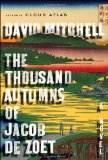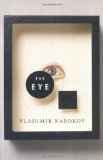Category: Books & Learning
Book Review: “Undaunted Courage” by Stephen E. Ambrose
March 20, 2011 { Book Reviews }Ambrose, like many biographers before him, is a man enamored of his subject. To him, Meriwether Lewis is the paramount, curious, bootstrapped Renaissance man of the early 19th century; this bosom buddy of Thomas Jefferson is the bold Yin to William Clark’s relevant but slightly duller Yang. His biographic sweep of Lewis primarily concerns the exhilarating rawness of the journey of the Corps of Discovery during 1804-1806, but it is at its core a story about the man, not merely the events for which he is yet championed.
In Which I Recite Poetry from Memory
March 6, 2011 | 1 comment { Books & Learning }
I’ve always been envious of people who can memorize poetry. Or prose passages, quotes, strings of digits. I’m tolerable good at minute fact-based recall—hence the appeal of little historical anecdotes, dates, foreign languages, minerals, functions in programming languages—but I’m hopeless with literature or poems. Or so I thought.
I Read Five-Ish Books in January
February 10, 2011 | 2 comments { Book Reviews, Books & Learning }I read five-ish books in January, 2011, and reviewed none of them. I’m going to give you a vapid grin now. My mind is empty. I have nothing to say. I name my hard drives after the muses (Clio, Euterpe, Thalia, Urania) but it’s as if that made them shun me. Bah. The devil with it. Maybe it’s because I’ve been reading so many technical blogs. I also read this stuff.
Hey, remember when we all lived in New Albion, just south of New Georgia?
January 10, 2011 { Books & Learning, David, Hobbies and Projects }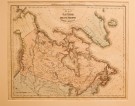
Mr. Pencil and I finally got around to framing some things—Pencilhaven has an epic backlog of framing—and I’d like to share it with you. Mr. P went through a self-professed eBay-cartography binge a few months ago, and, as a result, we have some nifty new specimens. This “Map of Canada and the Arctic Regions of North America” has something new to tell us about the weird history of our own neck of the woods.
Reading: 2010 in Review; 2011 Goals
January 9, 2011 { Books & Learning, Hobbies and Projects }A quick look back at how I fared, book-wise, in 2010 before I lose my breath again in the rapid onslaught of 2011. Did I read what I said I was going to read in 2010? Also, what’s in store for this year?
2010 in a nutshell: an emphasis on quality and specific areas over quantity. More longer books, fewer total books overall.
Book Review: “The Eye” by Vladimir Nabokov
November 25, 2010 { Book Reviews }I read Nabokov’s fourth novel this past weekend (and quite quickly—it’s a novella) and the connective tissue bonding his Russian works is starting to become manifest. In Mary we were introduced to the Russian emigré crowd; in King, Queen, Knave: grotesque love and the faulty sense of self-worth; in The Luzhin Defense the obsessive swapping of reality with dream-state. The Eye pulls in pieces of all these themes and toys around with a few more, not the least of which is the nature of our existence and a personality as refractive of the perceptions of those around it.
That is, can we ever know ourselves—can we ever exist?—as, really, all we are all, as Luzhin contemplates in The Defense: “…as in two mirrors reflecting a candle…only a vista of converging lights…” Luzhin here, too, realizes to some degree that we may all just be the incomplete sum of all of our own reflections off of others’ beliefs of us.
Book Review: “The Defense” by Vladimir Nabokov
November 22, 2010 { Book Reviews }Unlovable, flabby Luzhin has lost his mind, unfortunately right in the middle of a paramount chess match against another reigning international champion. Leaving the game at a cliffhanger, the forename-less Russian prodigy waddles off into the Berlin night, where he will ultimately collapse on a curb in an emotional fugue and, for some time, cease to exist.
Nabokov’s third novel, a Russian-German mash of European humanity between the wars, is a heavy tale of fate and obsession. Here Nabokov sheds most of the charming, naive elements of his earlier books, instead giving glimpses of the headstrong and flawlessly self-confident literary powerhouse that he would continue to display for the next half century.
Jupiter Week: Friday: Europa sounds eerily familiar
November 19, 2010 { Books & Learning }
Jupiter has been taunting, bright in middle of the southern sky for—what? months now?—from our latitude. Only the moon and Venus can hold a candle to its magnitude, and Venus is off being coy somewhere below the horizon. So there is a bold Jovian dot up there, and we’ve been pointing David’s telescope at it. And trying to attach cameras to it. With mixed success.
In honor of our feeble attempts, here is Jupiter week! Each day a little snippet of astronomical wonder about the biggest planet we’ve got.
Jupiter Week: Thursday: Io, the little pustule of the sky
November 18, 2010 { Books & Learning }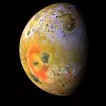
Jupiter has been taunting, bright in middle of the southern sky for—what? months now?—from our latitude. Only the moon and Venus can hold a candle to its magnitude, and Venus is off being coy somewhere below the horizon. So there is a bold Jovian dot up there, and we’ve been pointing David’s telescope at it. And trying to attach cameras to it. With mixed success.
In honor of our feeble attempts, here is Jupiter week! Each day a little snippet of astronomical wonder about the biggest planet we’ve got.
Jupiter Week: Wednesday: Delinquent moons
November 17, 2010 { Books & Learning }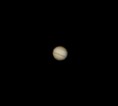
Jupiter has been taunting, bright in middle of the southern sky for—what? months now?—from our latitude. Only the moon and Venus can hold a candle to its magnitude, and Venus is off being coy somewhere below the horizon. So there is a bold Jovian dot up there, and we’ve been pointing David’s telescope at it. And trying to attach cameras to it. With mixed success.
In honor of our feeble attempts, here is Jupiter week! Each day a little snippet of astronomical wonder about the biggest planet we’ve got.
From the Archive
From the archive, a few random posts that you might not have seen before.
- Mar 17, 2008 { PDX }
Vintage Footage of Portland Traffic - Jun 24, 2008 { Books & Learning }
Books: Tuesday Thingers: My Rarer Books - Nov 29, 2007 { Geek }
links for 2007-11-29 - Jul 18, 2005 { Life }
Under the spell of Underwoods



